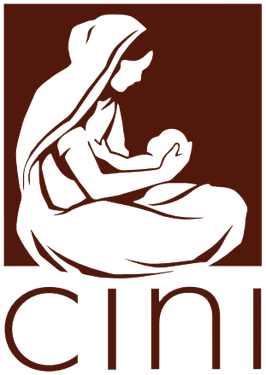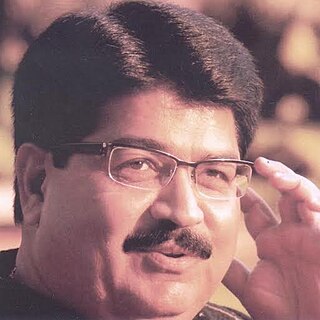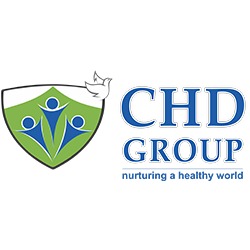
Vadodara, formerly Baroda, is a major city in the Indian state of Gujarat. It serves as the administrative headquarters of the Vadodara district and is situated on the banks of the Vishwamitri River, 141 km (88 mi) from the state capital of Gandhinagar. The railway line and National Highway 8, which connect Delhi with Mumbai, pass through Vadodara. The city is named for its abundance of banyan (vad) trees. Vadodara is also locally referred to as the Sanskrutik Nagari and Kala Nagari of India.

A traditional birth attendant (TBA), also known as a traditional midwife, community midwife or lay midwife, is a pregnancy and childbirth care provider. Traditional birth attendants provide the majority of primary maternity care in many developing countries, and may function within specific communities in developed countries.

EngenderHealth is a 501(c)(3) nonprofit organization based in Washington, D.C., with a focus in sexual and reproductive health (SRH). The organization operates in nearly 20 countries throughout Africa, Asia, and North and South America.

Child in Need Institute is a humanitarian organisation promoting "Sustainable development in health, nutrition and education of children, adolescents and women in need" in India. With its headquarters based in Kolkata, the CINI operates in some of the most poverty stricken areas in India. Its international arm, Fondazione CINI International, is based in Verona, Italy.
Health care services in Nepal are provided by both public and private sectors and are generally regarded as failing to meet international standards.

The quality of health in Cambodia is rising along with its growing economy. The public health care system has a high priority from the Cambodian government and with international help and assistance, Cambodia has seen some major and continuous improvements in the health profile of its population since the 1980s, with a steadily rising life expectancy.

A landlocked sub-Saharan country, Burkina Faso is among the poorest countries in the world—44 percent of its population lives below the international poverty line of US$1.90 per day —and it ranks 185th out of 188 countries on UNDP's 2016 Human Development Index. Rapid population growth, gender inequality, and low levels of educational attainment contribute to food insecurity and poverty in Burkina Faso. The total population is just over 20 million with the estimated population growth rate is 3.1 percent per year and seven out of 10 Burkinabe are younger than 30. Total health care expenditures were an estimated 5% of GDP. Total expenditure on health per capita is 82 in 2014.
Tribhuvandas Foundation is a public Charitable trust working with the AMUL milk cooperatives in and around Kheda district of Gujarat. Its mission is to work for betterment of health in rural communities of Central Gujarat.

Seva Mandir is an Indian grassroot NGO based in Udaipur, in Rajasthan state, founded by Dr. Mohan Sinha Mehta in 1968. Seva Mandir works mainly in natural resource development and sustainability, village development, women empowerment, education and health care, continuing education, and children's welfare.
The Comprehensive Rural Health Project (CRHP) is a non profit non-governmental organisation located in the Ahmednagar District of Maharashtra State in India. The organization works with rural communities to provide community-based primary healthcare and improve the general standard of living through a variety of community-led development programs, including Women's Self-Help Groups, Farmers' Clubs, Adolescent Programs, and Sanitation and Watershed Development Programs. CRHP was founded in 1970 by Dr. Raj and Dr. Mabelle Arole, who conceived the Organisation's model while on a Fulbright Scholarship in Maharashtra. The work of CRHP has been recognized by the Government of Maharashtra and UNICEF, as well as being introduced to 178 countries across the world. The purpose of CRHP is to help provide healthcare to the poor.
Kherwadi Social Welfare Association commonly abbreviated as KSWA is a nonprofit organization in India. KSWA aims to restore Upliftment of underprivileged youth in India. The organization was established in 1928. Yuva Parivartan offers different vocational training Programs for the underprivileged youth. This movement was started to help the unmotivated school dropouts to become economically independent by imparting livelihood skills to them.
Shroffs Foundation Trust (SFT) is a regional non-governmental organization primarily working in Vadodara district and a part of Kutch district in Gujarat, India.

Great Lakes University of Kisumu is a Kenyan private chartered university. The idea of establishing the Great Lakes University of Kisumu originated in the Tropical Institute of Community Health and Development (TICH) in Africa, which spearheaded the application for authority to operate as a university. The establishment of TICH in 1998 was inspired by a number of sources expressing the need for a formal course in Community Based Health Care leading to a recognized academic qualification.
Vandrevala Foundation is an NGO established by Cyrus Vandrevala and Priya Vandrevala in 2008. In 2009, the foundation launched the "Mental Health - India" initiative to raise awareness and provide services for emotionally distressed individuals.

Parimal Dhirajlal Nathwani is an Indian politician and industrialist. He represents Member of Parliament, Rajya Sabha from Andhra Pradesh since the 2020 Rajya Sabha elections, previously serving as a Rajya Sabha MP for Jharkhand from 2008-2020.
Aide et Action International South Asia is a nonprofit organization in India that provides support to local actors for the implementation of their projects on diverse programs related to education, early childhood care, and education, Livelihood Education for excluded youth from poor and marginalized sections, health, environment, social cohesion, the inclusion of the girl child. The Aide et Action Network discloses the use of funds received by its sponsors, donors, and partners, by publishing its financial statements each year, accessible to all on the Internet.

Armenia was admitted into the United Nations on 2 March 1992, following its independence from the Soviet Union. In December 1992, the UN opened its first office in Yerevan. Since then, Armenia has signed and ratified several international treaties. There are 20 specialized agencies, programs, and funds operating in the country under the supervision of the UN Resident Coordinator. Armenia strengthened its relations with the UN by cooperating with various UN agencies and bodies such as the International Monetary Fund, the World Bank, the World Food Programme, and with the financial institutions of the UN. Armenia is a candidate to preside as a non-permanent member of the UN Security Council in 2031.
Nand Ghar is the flagship project of the Anil Agarwal Foundation, the philanthropic arm of the Vedanta Group. The project provides infrastructure facilities along with early childhood education, healthcare, nutrition, and skill development for women with the goal of empowering 7 crore children and 2 crore women over 13.7 lakh Anganwadi centers in India. Under its Integrated Child Development Scheme (ICDS), the Ministry of Women and Child Development and Vedanta are working together on the Nand Ghar project. In April 2016, the first Nand Ghar was founded in Varanasi's Nagepur district

CHD Group is an Indian non-profit global health organisation headquartered in Mangalore. Founded on 27 June 2014, CHD Group works in the field of public health, disaster management, primary healthcare, road safety, women's health, skill development, monitoring and evaluation of programmes, implementing CSR programmes for corporate companies and livelihood for rural communities and partners with other Indian and foreign organisations, government ministries, diplomatic missions, United Nation agencies for capacity development, supportive supervision, technical support, CSR programme implementation and strengthening public health systems.

Bharatiya Janata Party, Gujarat is the state unit of the Bharatiya Janata Party that operates in Gujarat. C. R. Patil currently serves as state president of the party. The leader of the party is Bhupendrabhai R Patel, the incumbent chief minister of Gujarat. The head office of the party is located in Gandhinagar, Gujarat.












